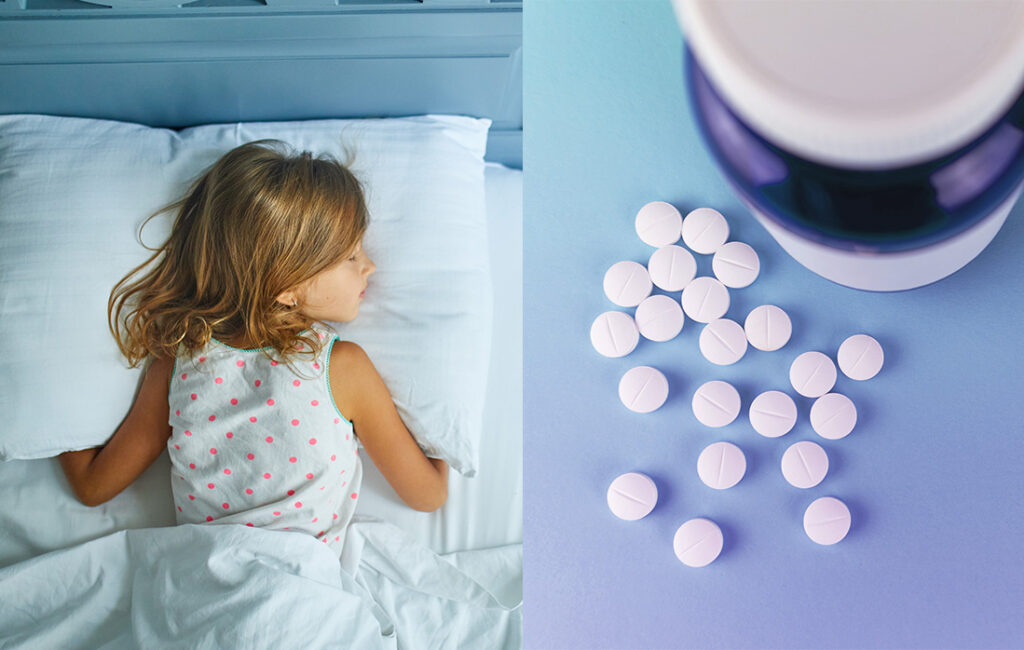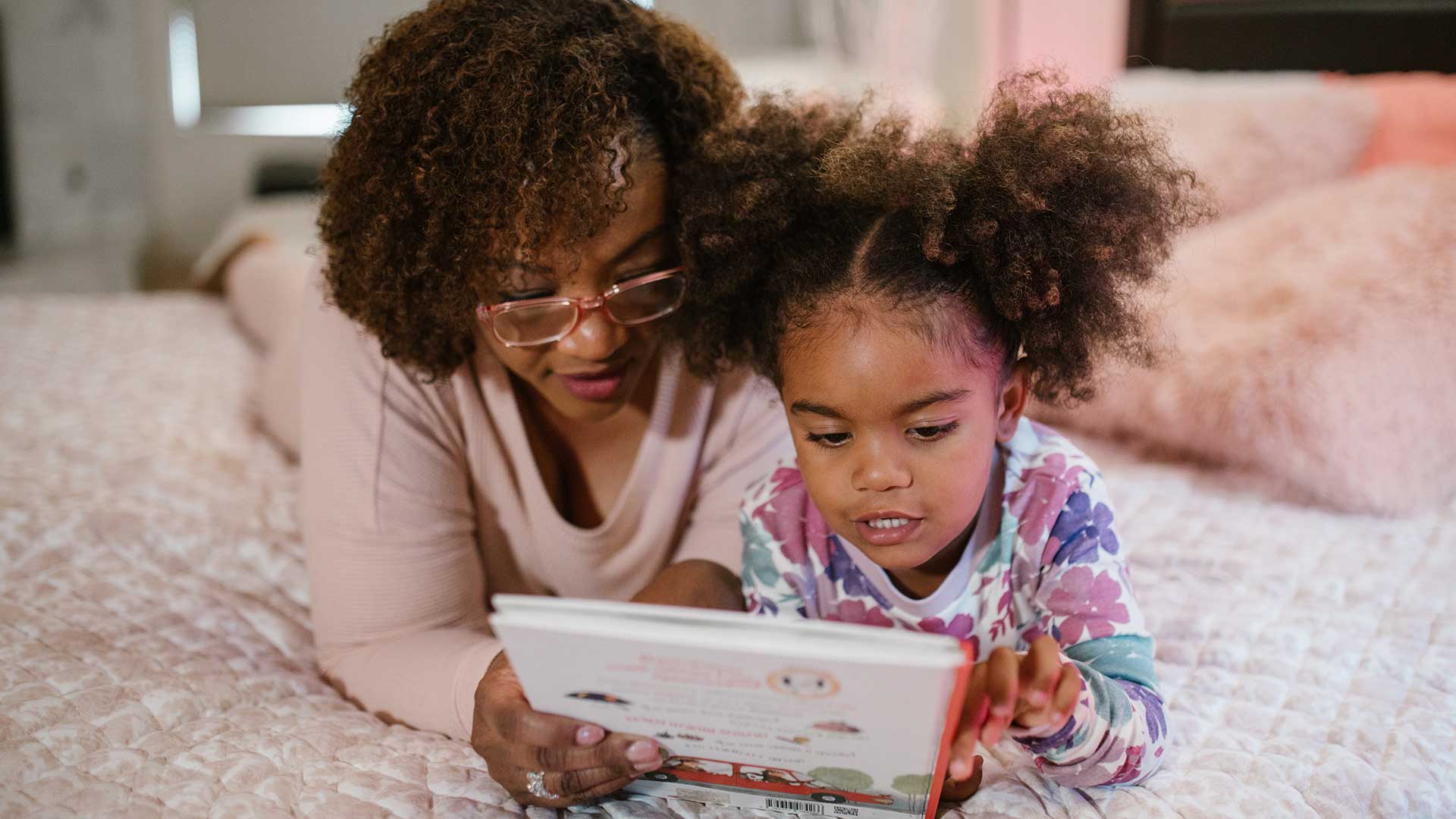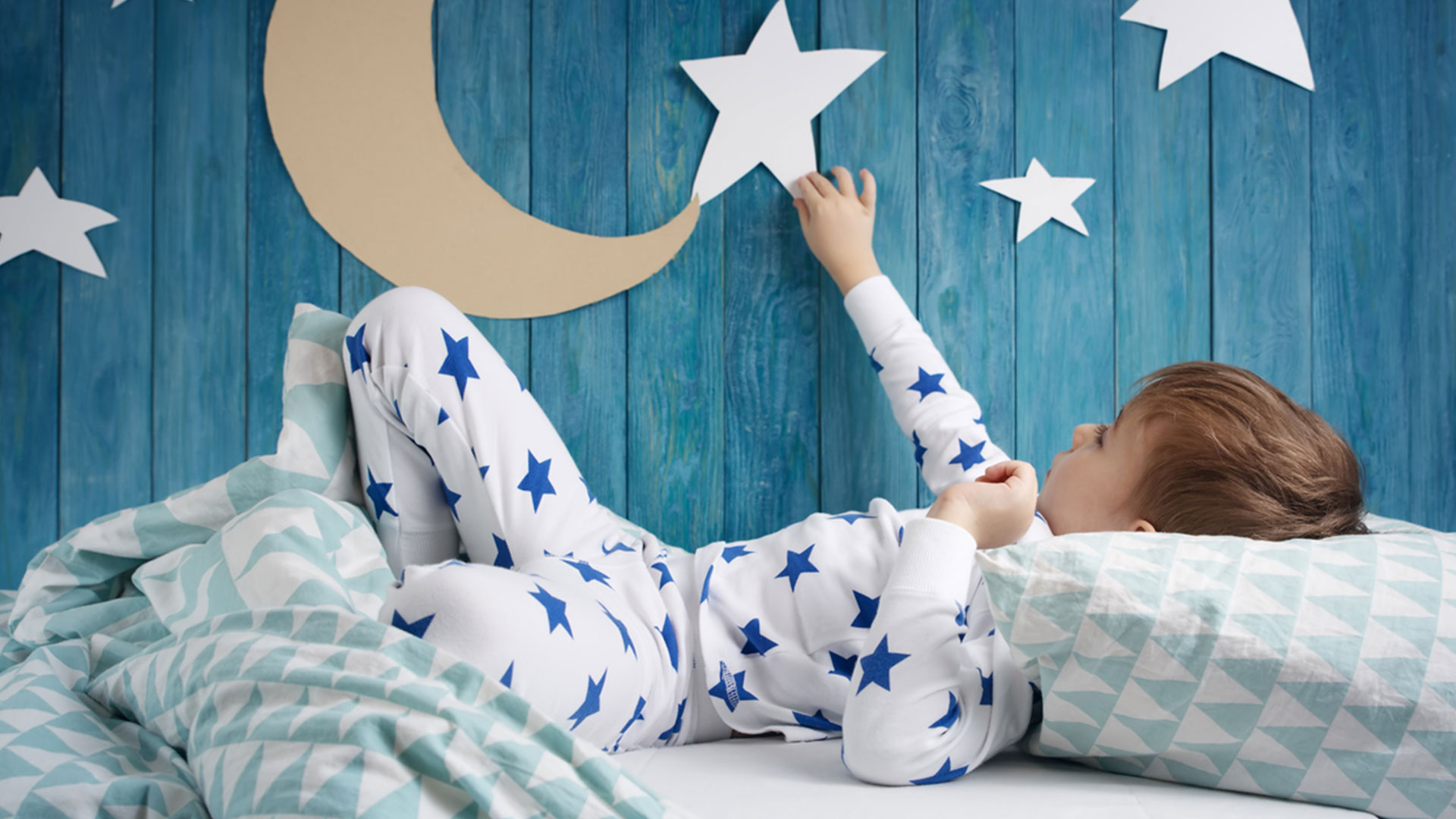
If we had to guess which segment of the population gets the worst sleep, it’s most likely our newest members — and their parents. We’d also venture to guess that most new parents would say that the sound of their infant’s first cries sounded remarkably like the death knell of sleep as they knew it. Not to be the bearer of bad news, but it doesn’t return to normal normal until somewhere around your first child’s 6th birthday. (1) It’s not us, folks; it’s the research. Six years is a long time. And when it’s riddled with fragmented sleep, it can feel like an eternity.
And, of course, life shows us that desperate times call for desperate measures. Ultimately, parents are left to their own devices in their search for sleep. As one mom shared on The Cut last year, co-sleeping is one way some parents find a workaround to get some shuteye. (2) When first presented with the idea, the author was “shocked and conflicted” at the thought of sleeping in the same bed as her baby. And understandably so, even a cursory internet search shows experts everywhere, from The American Academy of Pediatrics to La Leche League, warning against sleeping in the same bed as your baby. (3) (4) However, after doing her own research, she ultimately found “a cabal of co-sleepers hiding in plain sight.”
So… now that we know parents are openly co-sleeping under cover of night, it begs the question: what else are they doing to get some much-needed shuteye? Well, it looks like parents are giving their kids melatonin. More importantly, no one is hiding it, and no one is apologizing.
Shana from Fishkill, NY, a mom of two ages 10 and 8, says, “I think it’s a tool, and like any tool, parents need to balance its effectiveness against any hesitation they may have. Sleep is vital for growth and development, and I don’t feel guilty or bad about utilizing an effective tool that is doctor-recommended.”
Digging through existing research, we found that melatonin use among children has skyrocketed in recent years. One study even showed that sales of melatonin for children more than doubled between 2017 and 2020. (5) Moreover, a 2023 survey commissioned by The American Academy of Sleep Medicine revealed that almost half of the parents surveyed (46%) said they gave melatonin to their child under the age of 13, while one-third of parents surveyed reported giving melatonin to a teen over the age of 13. (6)
And none of this comes as a surprise if we consider how many parents take melatonin themselves. A 2023 Sleepopolis survey about sleep aid use revealed that adults comfortably lean into melatonin to catch their forty winks. Key data points from the survey showed:
- 71 percent of Americans have tried melatonin
- Over half of those surveyed reported taking melatonin in the past month
- 28 percent admitted to taking it three or more days per week
Regarding the supplement’s rockstar status. Dr. Christopher Allen, a Board-Certified Sleep Medicine Physician, Pediatric Neurologist, and Sleep Science Advisor for Aeroflow Sleep, says, “The increase in melatonin sales for children may be attributed to a growing awareness of sleep-related issues in children, increased stressors affecting sleep, and an inclination toward seeking natural remedies.” Beyond problem-solving, he notes that “easy access may contribute to the rising trend.”
At this point, we won’t even call giving melatonin to kids an open secret. Barbara from Westchester, NY, says, “Everyone is talking about it, and they’re talking about it all the time.”
And we can skip the hushed tones, too.
Holly from Arlington, Texas, says, “I honestly never felt it was taboo. I work at a grocery store with an extensive vitamin and supplement section, and we sell many melatonin-based supplements geared toward kids. I also see melatonin mentioned frequently in my parenting groups on Facebook.”
Mary Beth, from Charlotte, North Carolina, tells us she doesn’t hear about it as much from her social circles, but when she does, the overarching theme is, “Oh, we all take melatonin.”
Desperation Brought Us Here
Like many of the moms we spoke to, Mary Beth says she held off for a long time and eventually only did it out of sheer desperation. “I struggled with getting my daughter to sleep since she was a newborn. The stay-at-home mom tells us that her daughter almost seems wired to stay up late. Her resistance to falling asleep at a reasonable time led her family to try sleep training and working with a Sleep Coach — both of which failed. Ultimately, Mary Beth says that she sees melatonin as a way to promote independent sleep for her daughter. She also notes that she takes it nightly herself, and doing that was part of what got her over any guilt she had of giving it to her daughter.
Liz, a journalist and social worker from Hollywood, California, says, “I would love for my kid to be on absolutely nothing. In our case, we really do it out of desperation because it’s the only thing that works.” Noting that it doesn’t even work all of the time, Liz adds that melatonin “feels better” than giving her son actual prescription medication.
“We tried different medications years ago, and none of them helped even a little bit. Because many children with my son’s level of severity have their children on many medications by his current age ( we have given ourselves permission to keep using it, and I feel better about using melatonin nightly because we’re not using prescription medication. I definitely feel guilty and worry that we’ve created a dependence on melatonin, but in our case, it feels like the “better” option because we perceive it as more natural.”
On the topic of perception, Allen says parents shouldn’t confuse accessibility with safety.
“There might be a misconception among some parents that because melatonin is a natural hormone, it is inherently safe,” says Allen. “However, even natural substances can have side effects, and it’s crucial for parents to understand that dosing and duration of use should be carefully considered.”
Allen adds, “Melatonin is not regulated by the U.S. Food and Drug Administration (FDA) in the same way prescription medications are. The lack of FDA approval means that the manufacturing and labeling of melatonin supplements are not subject to the same rigorous standards as pharmaceutical drugs.” He goes on to say that the consistency of melatonin products and accuracy in labeling (sometimes even between batches of the same brand) is flawed, to say the least. Ultimately, he says, “Accessibility and perceived naturalness may contribute to the popularity of melatonin, but informed decisions should be based on professional advice.”
And while parents aren’t hesitating for fear of judgment, it seems their reservations stem from concerns about creating dependencies and the lack of deep research and long-term studies.
Holly says, “I was always concerned about the possibility of my kids developing a dependency on it, but I started giving it regularly when my youngest was struggling to settle down at night (somewhere around 4, I think). His inability to wind down meant I was spending a very, very long time in his room with him every night, and I felt like that was taking away from time with my older kid. I guess I did feel a little guilty initially, but it just worked so well that it quickly became a nightly thing. Eventually, both started taking their sleep gummies every night, and that lasted for well over a year when my concerns for dependency led to me having them both quit cold turkey.” Holly adds, “It worked for us for a long time, and I don’t judge other parents who give melatonin, but I’m also glad my kids are back to falling asleep on their own without it.”
So What Is Melatonin?
If you’re a little late to the [melatonin] party, Dr. Christopher Allen explains, “Melatonin is a hormone naturally produced by the pineal gland in the brain in response to darkness. It does many things in the body but plays a crucial role in regulating the sleep-wake cycle.”
Allen adds, “Melatonin supplements work by mimicking the effects of the natural hormone, helping to signal to the body that it’s time to sleep.
Is Melatonin Safe for Children?
According to Allen, “Melatonin is generally considered safe for short-term use in children, but it’s important to consult with a healthcare professional before giving them any type of supplement that includes melatonin. Allen adds that while melatonin is safe when given the right dose at the right time, it’s not the same for everyone. “The appropriate dosage and duration should be determined based on individual needs and health considerations.”
What Should Parents Know before Giving Their Kids Melatonin?
Before giving melatonin to children, Allen says parents should:
- Check with your child’s doctor or pediatricain to determine if melatonin is appropriate for their child.
- Establish the correct dosage and duration of use based on the child’s individual needs and health status.
- Be aware of potential side effects, including daytime drowsiness, headaches, and changes in mood.
- Consider and address underlying sleep issues or lifestyle factors contributing to sleep disturbances.
- Use melatonin as a short-term solution and reassess if sleep problems persist.
Ultimately, Allen says, “It’s essential for parents to approach the use of melatonin with caution and prioritize a holistic approach to improving sleep hygiene in children.”

A Parent’s Guide to Melatonin for Kids

Children and Sleep: A Parent’s Guide

Common Natural Sleep Aids & Supplements

Everything You Need To Know About Magnesium And Sleep
Sources
1. David Richter, Michael D Krämer, Nicole K Y Tang, Hawley E Montgomery-Downs, Sakari Lemola, Long-term effects of pregnancy and childbirth on sleep satisfaction and duration of first-time and experienced mothers and fathers, Sleep, Volume 42, Issue 4, April 2019, zsz015, https://doi.org/10.1093/sleep/zsz015
2. Syfret, W. (2023, April 27). Are we all secretly co-sleeping?. The Cut. https://www.thecut.com/2023/04/co-sleeping-benefits-and-dangers.html
3. American Academy of Pediatrics Updates Safe Sleep Recommendations: Back is best. Home. (n.d.). https://www.aap.org/en/news-room/news-releases/aap/2022/american-academy-of-pediatrics-updates-safe-sleep-recommendations-back-is-best/
4. Safe co sleeping: The safe sleep Seven. (n.d.). https://llli.org/news/the-safe-sleep-seven/
5. Hartstein LE, Garrison MM, Lewin D, Boergers J, LeBourgeois MK. Characteristics of Melatonin Use Among US Children and Adolescents. JAMA Pediatr. 2024;178(1):91–93. doi:10.1001/jamapediatrics.2023.4749
6. AASM sleep prioritization survey children and teen … (n.d.-a). https://aasm.org/wp-content/uploads/2023/08/sleep-prioritization-survey-2023-sleep-disruptors.pdf
7. Allen, Christopher. Email Communication. February 16, 2024.
